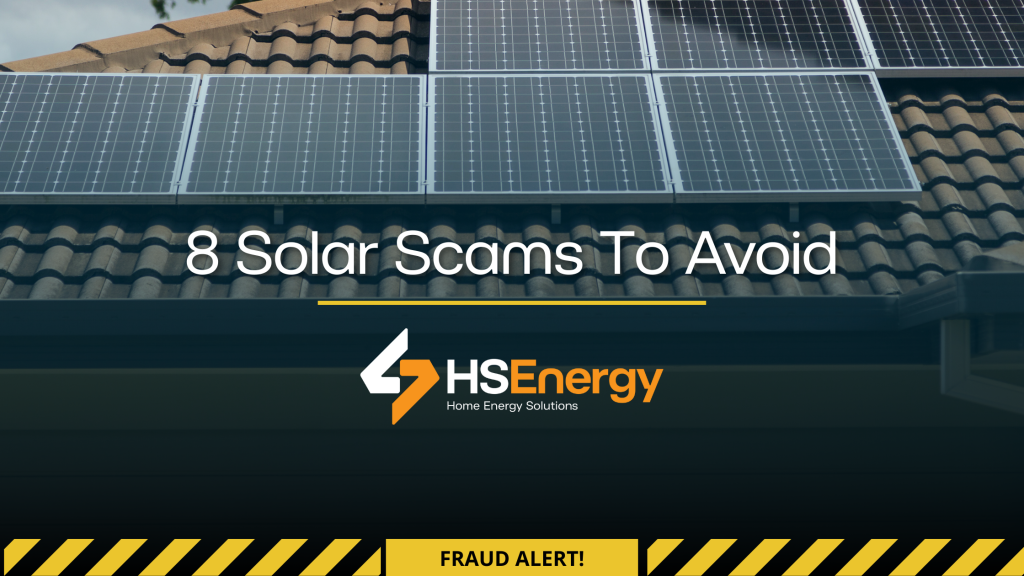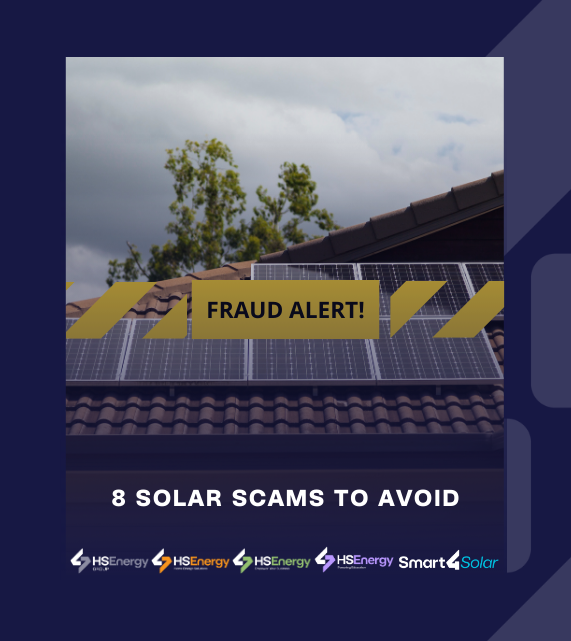What You Need to Know About Solar Scams
The solar industry has grown rapidly in recent years, helping thousands of homeowners reduce their energy bills and reliance on the grid. However, with this growth comes an unfortunate rise in scams targeting those interested in solar energy and battery storage solutions. Whether you’re considering installing solar panels or already have a system in place, it’s crucial to understand how you can protect yourself from solar scams.

Common Solar Scams to Watch Out For
1. “Free” Solar Panel Offers
Some companies advertise “free solar panels” to lure in customers. While there are legitimate government incentives and financing options to reduce upfront costs, there is no such thing as completely free solar. Often, these offers involve leasing agreements where the company retains ownership of the panels, leaving homeowners with high monthly payments and limited benefits. Always verify claims and read the fine print before committing.
2. High-Pressure Sales Tactics
Scammers often use aggressive sales tactics to push homeowners into quick decisions. They may claim that a special discount or government grant is expiring soon and that you must sign up immediately. Reputable solar providers give you time to evaluate options and will never rush you into a decision.
3. Impersonation of Government or Utility Officials
Some fraudsters pose as government representatives or energy company officials, offering “energy audits” or special programs to lower your bills. These imposters use official-looking paperwork and logos to appear legitimate. If you receive an unsolicited call or visit from someone claiming to be from the government or your utility provider, verify their identity before providing any personal information.
4. Misleading Contracts and Hidden Fees
Contracts with hidden clauses, escalating fees, or misleading terms are a common scam in the solar industry. Some customers sign agreements believing they are purchasing a system outright, only to discover later that they are locked into a long-term lease with unfavorable terms. Always read the contract carefully and consult a legal professional if you’re unsure about any details.
5. Identity Theft Through Fake Solar Companies
Fraudsters sometimes set up fake solar companies to collect personal information, such as bank details and national insurance numbers. These solar scams often start with an online survey or a phone call requesting sensitive information. Be cautious about sharing personal details unless you are sure you’re dealing with a legitimate company.
6. False Claims of Immediate Tax Rebates
Some salespeople promise immediate tax rebates or refunds to make a deal seem more attractive. While the UK government does offer VAT reductions and incentives for solar energy, these are applied through tax returns or legitimate rebate processes, not as upfront cash payments. Always check with official sources to confirm eligibility.
7. Overpriced and Unnecessary Maintenance Plans
Some homeowners, particularly elderly individuals, are being pressured into expensive maintenance contracts for their solar systems. These plans often provide little additional value, as modern solar panels require minimal upkeep and most warranties already cover key components. Reputable solar companies will always assess whether a maintenance plan is necessary and offer fair pricing if one is recommended.
8. Overpriced Upgrades to Older Systems
Many solar owners with older systems are being pressured into purchasing unnecessary and overpriced upgrades, often under the guise of increasing efficiency. While upgrades can sometimes improve performance, they need to be carefully considered—especially for systems installed over 10 years ago. Older solar installations were typically set up under generous Feed-in Tariff (FiT) agreements, which guaranteed high payments for the energy they generated. These agreements were made on 25-year terms, and energy providers will look for any excuse to cancel them. Making changes to an older system—such as adding new panels or optimising output—could void the original FiT agreement, leading to significant financial loss.
A reputable solar company will always check whether a customer is on a legacy FiT agreement before recommending upgrades. They should clearly explain any risks involved and ensure that no unnecessary modifications are made that could jeopardise existing incentives.
Top Tips to Avoid Solar Scams
- Do Your Research – Before committing to any solar product or service, check the company’s reviews on platforms like Trustpilot and Google. Look up their business registration details and see if they are accredited by industry bodies, such as the MCS (Microgeneration Certification Scheme), which ensures that the company meets industry standards for quality and performance.
- Get Multiple Quotes – Compare offers from different providers to identify any that seem suspiciously high or low. A reputable company will provide a clear breakdown of costs without hidden fees.
- Avoid High-Pressure Sales – If someone insists that you must sign immediately to lock in a deal, walk away. Legitimate companies give you time to consider your options.
- Never Share Personal Information Unnecessarily – Be cautious about giving out bank details, national insurance numbers, or signing contracts without thoroughly reviewing them.
- Understand Your Warranty and Existing Coverage – Before purchasing a maintenance plan, check what your existing warranty covers. Most modern solar systems require minimal upkeep.
- Report Suspicious Activity – If you suspect a scam, report it to Trading Standards, Citizens Advice, or Action Fraud UK to help prevent others from falling victim.
Final Thoughts
While solar power is a fantastic investment for reducing energy costs and improving sustainability, it’s essential to stay informed and protect yourself against solar scams. By knowing the warning signs and following these best practices, you can confidently make decisions that benefit your home and wallet. If you ever have doubts about an offer or need trusted advice, HSEnergy is here to help.
For more guidance contact our team today.
📞 01444 708252
📧 info@hsenergy.co.uk

